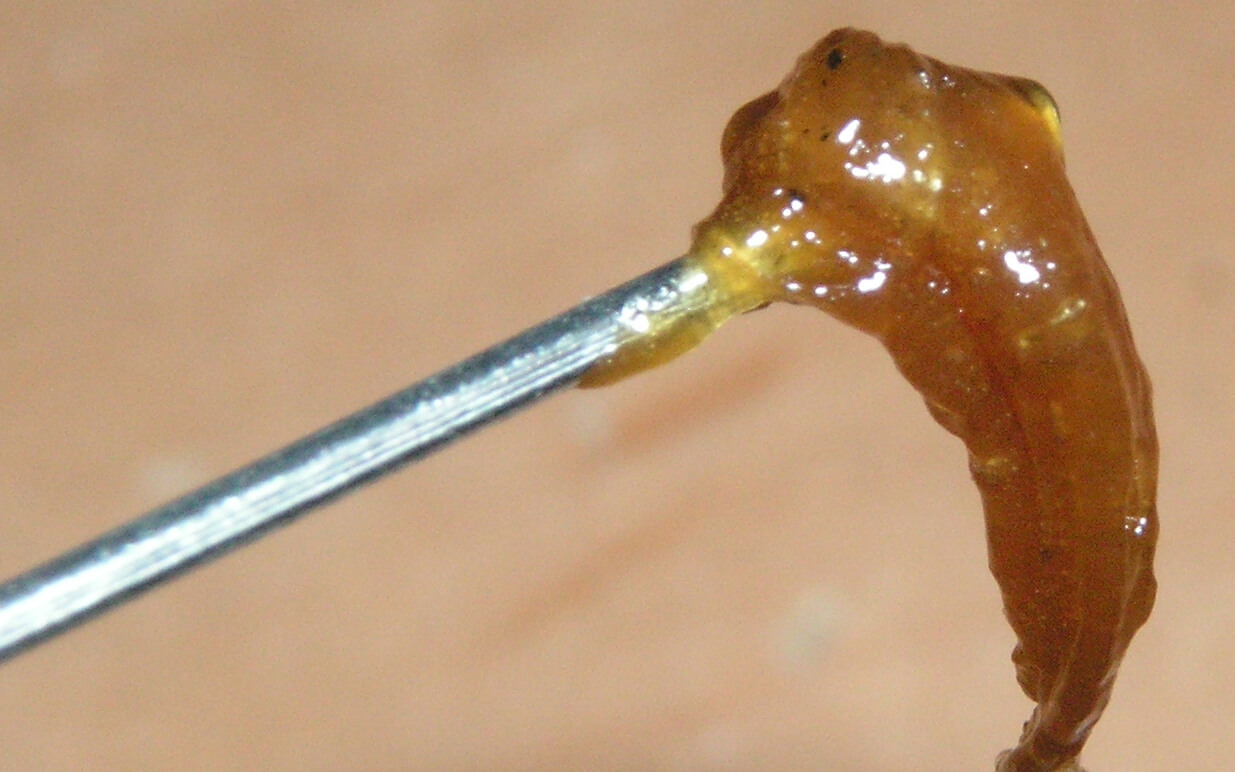Despite its extreme potency and the dangers in making it, marijuana wax has been spreading across the country.
According to reports, the Drug Enforcement Administration is
cracking down on makers and dealers of a potent new distilled THC product called marijuana wax.
Named “Operation Shattered Dreams,” a series of DEA drug raids earlier this year in California focused on busting marijuana wax makers and distributors. Despite the efforts of the DEA, marijuana wax continues to grow in popularity across the country with alternative descriptive names like honey and butter.
Wax is a distillation of THC, the active ingredient in marijuana. The concentrated drug is so potent that a single hit will keep a person high for more than a day. A user named Ashley
described what marijuana wax looks like and its extreme potency. “If you had a cinnamon candle that was brown and you light it, and dripped the wax on the table. The little wax right there. That’s what it looks like…I would take the hit and find myself coughing for seven minutes straight. I think I’m done and cough some more.”
Easy to hide in plain sight, marijuana wax looks as ordinary as lip balm. The combination of marijuana wax being simple to conceal and so powerful means that it is spreading quickly across the country. In Colorado, marijuana wax is legal and can be found for sale in in recreational marijuana dispensaries. A three-day contest in Denver called
the X-Cup is designed to determine who can make the most potent batch of marijuana wax.
Marijuana wax is made by heating up the marijuana plant. It’s a process involving butane, a highly flammable gas, which extracts the THC. A quick search online reveals tutorials for making marijuana wax, but none of them reveal the extreme dangers involved. “He ended up burning his arm off, like all his skin was off,” Ashley said when describing how her boyfriend tried to make wax. “He had to go to the hospital and everything…something went wrong.”
From California to Texas, the popularity of marijuana wax is spreading like wildfire with users unaware of the dangers involved. Special Agent Wendell Campbell with the Houston division of the Drug Enforcement Agency reflected on the growing problem. “This is actually a national issue, but it’s hitting Houston hard,” Campbell said. “They’re getting that THC content up to 50, 60, 80, sometimes 90 percent as opposed to the traditional 13 percent.”
This post originally appeared on thefix.com
